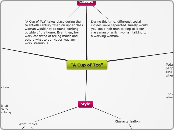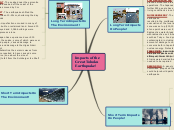Colonial frustration with England
Colonies buy finishes goods from England
Britain-Receives all raw materials from colonies exclusively
Factor#1- Social conflict-lower class discontent upper class-colonists welcomed protest support alarmed with mob violence Factor#2-Constitutional factor-examine the purpose for each law
What were the major causes of the conflict between the colonists and British authorities after 1763 3.1,3.2,3.3,3.4,3.5
3.9 The War ends 1783
Representative democracy,in the Legislative Branch
Economic Changes-Loyalist estates were confiscated-Mercantilism was abolishes -Industry and manufacturing increased-Westward Migration-Cheap and plentiful land readily available
International Changes- Establish a foreign policy- Oppressed peoples looked to the United States as an example
Social Changes -many Northern states abolishes it -Common man was given more rights-(first-born male inheriting the entire estate upon the death of his father)was abolishes -Americans,Not Englishmen
Articles of Confederation became the basis of the government
Voting rights were given at all white,male,landowners
The United States became a republic
3.8
Phase 1#-1776-late 1777-Containment in New England.Phase#2- late 1777-early 1778-Middle Colonies. Phase #3-early 1778-1781-The South-Yorktown(1781)
3.7-strenghts and weakness
Colonists fighting defensively.Written Constitution (Articles of Confederation) not adopted until 1781.
3.5-"We Hold These Truths to Be Self Evident
3.4-The logic of Resistance
1775-Lexington and Concord -started the Revolutionary War 1775-The Conciliatory Resolution-an attempt to reach a peaceful settlement with the Thirteen Colonies
1773-Boston Tea Party-boycotting the tea in protest of the Tea Act
1772-Committees of Correspondence-circulating information
1770-Boston Massacre-killing a few colonials
3.3The Rejection Of Empire 1763-1770
1754-1763=9 years
French and Indian vs England War and seven Year War in Europe
Cause
Gov.Dinwiddle send G.W instruct the French to leave and that cause a war
effects
1761=Writs of Assistance-Parliament passed a law
1763-Proclamation of 1763
1764-Sugar Act- tax on sugar and coffee,iron
1767-Townshend Act-taxes on everyday items
1765-Stamp Act-Stamps on newspapers,legal docs,playing card
1774-Coercive-acts closed the port of Boston Quartering Act-required colonists to house and feed troops
July 1775-The Olive Branch Petiton
1776-Thomas Pain -Common sense -There is no reason for England to have control over the vast lands of America
July 4,Indenpents day
June 17-Bunker Hill\Breed's Hill
Stamp Act Congress In October 1765-12.Sons of Liberty
Repeal the Stamp Act in March 1766
Ft.Necessity- July 4,1754 -3.2
National debt of England
Most heavily taxed in Europe
proclamation Line of 1763 because they don't a war because they are already broke (England)
1.France gives up all of Canada to England
Prior to the French and Indian War- Was generally accepted
1696-Navigation Act- not enforced
1733-Molasses act- forced New England rum merchants to buy their molasses









